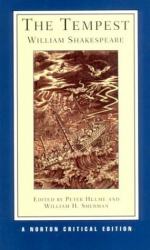|
This section contains 14,950 words (approx. 50 pages at 300 words per page) |

|
SOURCE: "Miraculous Harp: A Reading of Shakespeare's Tempest," in Shakespeare Studies: An Annual Gathering of Research, Criticism, and Reviews Vol. V, 1969, pp. 253-283.
In the following essay, Berger argues against sentimental approaches to The Tempest and the character of Prospero, maintaining that the magician's resignation of his occult powers at the play's conclusion is in fact "a final attempt to reestablish mastery."
I
In many of the later plays, some analogue of dramatic control is imposed—and conspicuously imposed—on action which would otherwise get out of control; action which indeed, in earlier tragedies, did get out of control. The echoes of, or allusions to, earlier tragic patterns in such plays as Measure for Measure, Pericles, Cymbeline, The Winter's Tale, and The Tempest, have often been remarked. The modes of resolution seem deliberately strained, unnatural, artificial, or unrealistic in these plays, especially since they resonate with allusions to...
|
This section contains 14,950 words (approx. 50 pages at 300 words per page) |

|


